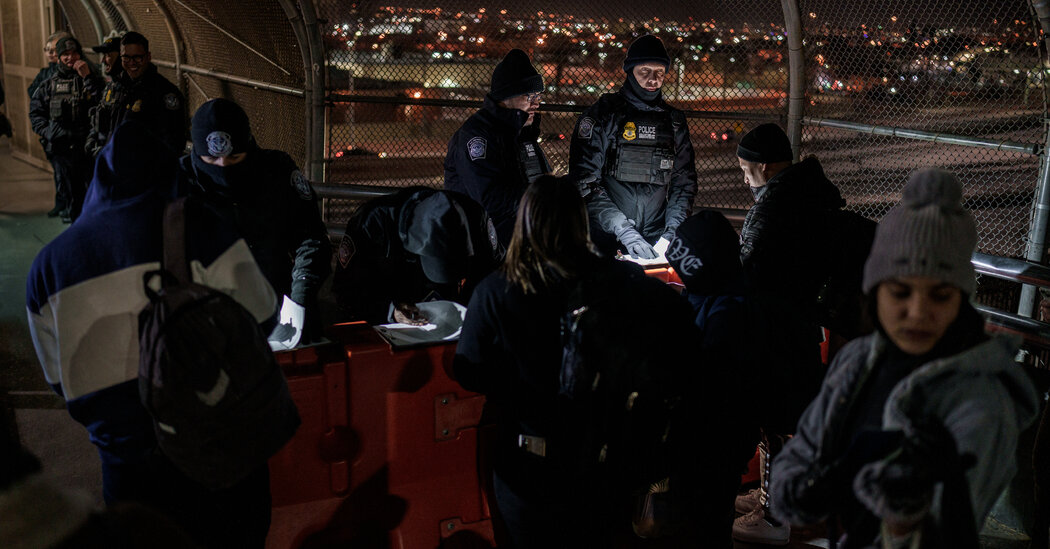The Surveillance Tools That Could Power Trump’s Immigration Crackdown
Border enforcement agencies have spent billions assembling surveillance tools to track and find people. These could be critical in President Trump’s immigration agenda.


Border enforcement agencies have spent billions assembling surveillance tools to track and find people. These could be critical in President Trump’s immigration agenda.
Apps and ankle monitors that track asylum seekers in real time wherever they go. Databases packed with personal information like fingerprints and faces. Investigative tools that can break into locked phones and search through gigabytes of emails, text messages and other files.
These are pieces of a technology arsenal available to President Trump as he aims to crack down on illegal immigration and carry out the largest deportation operation in American history. To do so, his administration can tap a stockpile of tools built up by Democrats and Republicans that is nearly unmatched in the Western world, according to an analysis by The New York Times.
A review of nearly 15,000 contracts shows that two agencies — Immigration and Customs Enforcement, and Citizen and Immigration Services — have spent $7.8 billion on immigration technologies from 263 companies since 2020.
The contracts, most of which were initiated under the Biden administration, included ones for tools that can rapidly prove family relationships with a DNA test to check whether, say, an adult migrant crossing the border with a minor are related. (Families are often treated differently from individuals.) Other systems compare biometrics against criminal records, alert agents to changes in address, follow cars with license plate readers, and rip and analyze data from phones, hard drives and cars.
The contracts, which ranged in size, were for mundane tech like phone services as well as advanced tools from big and small companies. Palantir, the provider of data-analysis tools that was co-founded by the billionaire Peter Thiel, received more than $1 billion over the past four years. Venntel, a provider of location data, had seven contracts with ICE totaling at least $330,000 between 2018 and 2022.
The Biden administration used many of these technologies for immigration enforcement, including in investigations of drug trafficking, human smuggling and transnational gang activity. How Mr. Trump may apply the tools is unknown, especially as the whereabouts of many immigrants are known and the government faces a shortage of officers and facilities to detain people.






